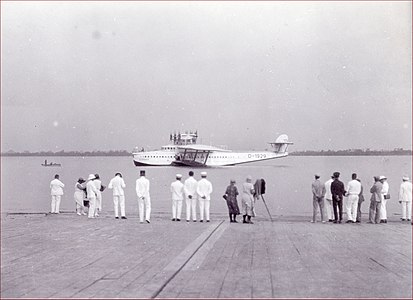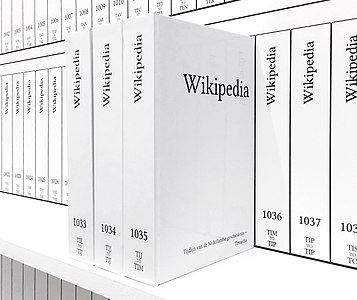Learning and Evaluation/Newsletter/2018/5/16
This March, we hosted a series of virtual conversations with women Wikimedians from a diverse selection of nationalities and Wikimedian initiatives. Personal stories, shared experiences, and inspiring anecdotes brought these conversations to life online.
by Noa Morales
Inspired by Women’s History Month, the Community Engagement Team sought to highlight the contributions that women make to Wikimedia projects, and to learn how we can bolster the work of women and other underrepresented communities in Wikimedia. With that in mind, the idea was borne to host a conversation space by and for women who work in areas of the movement where increasing diversity is particularly impactful for our mission.
Women from Wikimedia Programs, Technical Spaces, and Leadership positions within the movement were invited to share their experiences in informal virtual settings which lasted about an hour. In these conversations, Wikimedians shared the stories of their participation in the movement, before the floor was opened to discussion questions by other virtual attendees.
We gained a number of insights into what works for Women in Wikimedia, setting a frame for how we can build on these successes to further the goals of the movement. Across the conversations and experiences of women in different corners of the globe, many responses sang in harmony to describe how they found inspiration and fulfilment in Wikimedia:
- A sense of community and support was an important aspect of why women felt welcome contributing to Wikimedia projects.
- Mentorship is instrumental to empowering women to become leaders in their communities, and to take on more ambitious and challenging projects.
- A culture of learning helps women feel encouraged to try, fail, and experiment with new ideas in a safe space.
The conversations revealed another useful insight – that they were a good idea! Enthusiasm, sorority, and community bonding dominated the conversations, with calls for monthly iterations of similar events, for women and any and all communities within Wikimedia. Going forward, we will emphasize this kind of dialogue as a means of strengthening communities and learning how to better support them.
More info:
In December 2017, Education Program Manager Nichole Saad visited three Asian countries to conduct site visits of local Education Programs. This was to pilot a new approach: to offer in-context support to the unique challenges each program faces.
by Noa Morales
We’re proud to say that Education Programs can be found in Wikimedia communities all over the world, providing students and educators with 21st century information literacy skills. This success can be owed to the Foundation’s dedication to tools and agendas to advance knowledge equity on a global scale. But therein lies a dilemma: how can we continue to advance Education Programs worldwide, without neglecting the needs of small, local, and blooming Wikimedia communities? In-context support may be the answer.
Nichole Saad set out to explore what unique obstacles face education programs in India, Taiwan, and Nepal, and what tools can be used to overcome them. Boosting morale of program leaders was also a priority – showing direct support from the Wikimedia foundation is especially important to rural communities which are often unable to attend Wikimedia events and meetups.
Nichole visited a total of 11 institutions, spending 82 hours working with Wikimedians, and 26 in workshops and training exercises with program leaders. Overall, the visits had three components:
- Outreach to local educational institutions, advocating for Wikimedia projects
- Discussions with educators to learn about challenges they face
- Training Wikimedians to approach these challenges
These hours emphasized the need for tools and guidance which can be scaled-down to Wikimedia communities at the local level. Nichole’s work also showed the importance of reaching out to smaller programs, and the overall effectiveness of this outreach – 83% found the support extremely helpful to their communities.
So, what now? Given its success, the Education team is exploring how we can offer in-context support wherever it is needed. An incubation project, wherein communities can apply for in-context guidance to help develop their programs, is one way we hope to make sure that our goals are achieved not only on the global, but on the local level as well.
More information:
blogs, events & more!
Every month, we share knowledge with a focus on programs, process or tools on Wikimedia Foundation's blog. Find all our entries on the Wikimedia blog
Featured blog posts:
Wikidata is an excellent resource for those looking to add ‘hard’ data like gender, profession, nationality, and other characteristics to articles – but what about using Wikidata in other aspects of research and article creation? In a quest to fill content gaps surrounding female photographers on Wikipedia, Sandra Fauconnier demonstrates how a mastery of Wikidata helped her explore her topic, and connect the dots between information across articles, databases, and languages.
Read more.
Wikipedia readers across 14 languages were recently asked: “Why are you reading this article today?” in an attempt to learn more about why users come to Wikipedia. In the past, we’ve learned about English readers’ habits and motivations by framing the same question. This new research, however, provides the opportunity to learn about our readership across the globe, and how we can better meet the needs of a diverse collective of worldwide readers.
Read more.
| June
| ||||||
| Mon | Tue | Wed | Thu | Fri | Sat | Sun |
| 1 | 2 | 3 | ||||
| 4 | 5 | 6 | 7 | 8 | 9 | 10 |
| 11 | 12 | 13 | 14 | 15 | 16 | 17 |
| 18 | 19 | 20 | 21 | 22 | 23 | 24 |
| 25 | 26 | 27 | 28 | 29 | 30 | |
June 8: Appeals and complaints for Annual Plan Grants accepted until 8 June
June 14: Wikimedia Project Grants Showcase
June 30: Board decision for Annual Plan Grants due
| July
| ||||||
| Mon | Tue | Wed | Thu | Fri | Sat | Sun |
| 1 | ||||||
| 2 | 3 | 4 | 5 | 6 | 7 | 8 |
| 9 | 10 | 11 | 12 | 13 | 14 | 15 |
| 16 | 17 | 18 | 19 | 20 | 21 | 22 |
| 23 | 24 | 25 | 26 | 27 | 28 | 29 |
| 30 | 31 | |||||
July 16-18 Learning Days at Wikimania Cape Town
July 16-22 Wikimania 2018
July 30: Annual Plan Grants project reports for Q2 due
| August
| ||||||
| Mon | Tue | Wed | Thu | Fri | Sat | Sun |
| 1 | 2 | 3 | 4 | 5 | ||
| 6 | 7 | 8 | 9 | 10 | 11 | 12 |
| 13 | 14 | 15 | 16 | 17 | 18 | 19 |
| 20 | 21 | 22 | 23 | 24 | 25 | 26 |
| 27 | 28 | 29 | 30 | 31 | ||
August, date TBD: CE Insights report to be published
Karvachar’s WikiClub: When getting knowledge is cool
Students find Karvachar's Wiki Club as a space in which they can collaborate, learn, and grow as active Wikimedians.
By Lilit Tarkhanyan

Anahit Gevorgyan is one of about 35 children who attend the WikiClub to edit articles in Armenian Wikipedia and other wiki projects.
Karvachar’s WikiClub was opened on 15th March, 2017 in Karvachar city of the Artsakh Republic by Wikimedia Armenia and with the financial support of an Armenian private sector representative. The editors of the WikiClub have already created 434 articles and added 3.734.443 bytes in Armenian Wikipedia, have completely proofread 4 books in Armenian Wikisource.
Lena, 13, says: “I like the kindness I feel in the WikiClub. Even if I am in a bad mood, when I come to “Wiki”, I surely feel better”.
She creates articles about villages of Karvachar region. Most of the villages are abandoned now and Lena thinks it is important to tell about the historical settlements of Artsakh. She also plans to make a presentation on the topic as many of her friends don’t know much about it.
Sona, 17, says that the WikiClub has the green color for her.
“Green is my favorite color and it gives calmness to me. May be it is because of the green T-shirts which we had at summer WikiCamps”.
The active editors of the WikiClub also participate in the WikiCamps organized by Wikimedia Armenia. Students are mainly engaged in translation of articles from other, commonly, Russian Wikipedia. This helps them to improve knowledge of Russian language. Svetlana, 14, is happy to hear from the teacher that her Russian has been essentially improved during recent months.
Editors of the WikiClub often visit the villages of the region and organize workshops for the students living there. They have already been in Nor Brajur and Yeghegnut villages and presented wiki projects at local schools. After the presentation some children have become Karvachar’s WikiClub members.
The WikiClub is also a place to gather and organize educational and cultural events. Wiki kids have various interesting meetings there with various specialists. The latest one was a meeting with political analyst Alexander Kananyan who talked with children about the history of Karvachar.
Karvachar is an isolated part of Artsakh and many children living there often think they don’t have the opportunity to get competitive education for the modern world. Editing wiki projects is one of the main tools to speak to the modern world and to feel a part of it. Attending the WikiClub lets children feel closer to other smart kids living far, to communicate with them and to provide free knowledge for each other.
At present Wikimedia Armenia is working actively on expanding the number of its WikiClubs including new villages and cities in different regions of Armenia. In near future with the support of "Bridge for CSOs" Program of Armenian General Benevolent Union funded by the European Union, Wikimedia Armenia will open 5 new WikiClubs where students of different ages will be given an opportunity to learn editing on various Wikimedia projects.
Read more:
IdeaLab is a space where wikimedians all over the world share their inspiration with others.
IdeaLab is an incubator for people to share ideas to improve Wikimedia projects and to collaboratively develop them into plans and grant proposals. These are two selected ideas this quarter:
Ada Lovelace is one of the most fascinating engineers you've likely never heard of, making her is the perfect subject for a day celebrating women’s contributions to science. Edit-a-thons in Universities are a great way to combat underrepresentation of women in STEM fields. Learn more.
This idea proposes “Did you know?” signs in public places all around India to teach about local history and to inspire viewers to look up more information on Wikipedia. QR codes linking to relevant articles aim to increase readership and awareness for local historical sites. Learn more.
Join the IdeaLab community. You can help develop ideas in many ways: with technical skills, translating, networking and more. Share your own!
The Program Evaluation & Design portal has tools to learn about your activities and measure their success.
The Learning Pattern Library is a hub to share learning around certain challenges that are common across Wikimedia programs and projects. Featured Learning Patterns in this issue:
How do we approach marginalised communities to help bring their knowledge to Wikimedia projects? Self-awareness and critical reflection are key to being a thoughtful and respectful ally to groups left out by power and privilege structures. Learn more.
Content gaps can be found in all subjects across Wikipedia, so it’s easy to feel discouraged to take them on. Editing challenges are a great way to inspire community members, friends, and even yourself to help fill the gap, one article at a time. Learn more.










